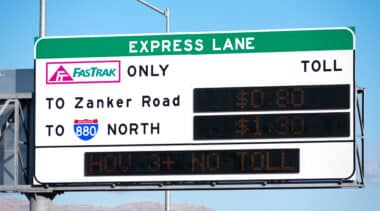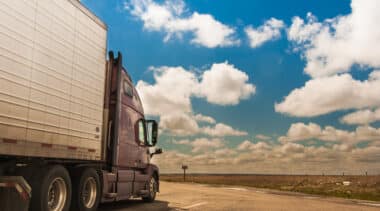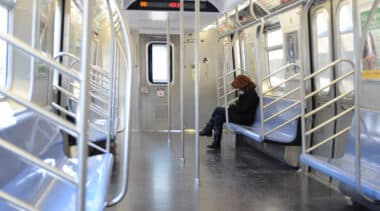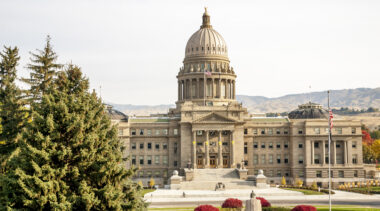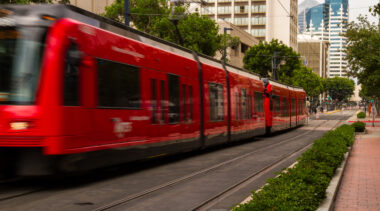Policy Briefs
View all policy studies.-
Providing Electronic Toll Collection to the Unbanked and Underbanked
Providing one or more user-friendly tolling options for the unbanked and underbanked is important to ensure economic inclusion for everyone.
-
U.S. Space Traffic Management and Orbital Debris Policy
Public-private partnerships could improve the tracking and removal of space debris and better manage space traffic.
-
The 2021 Texas Power Crisis: What Happened and What Can Be Done to Avoid Another One?
This report focuses on ERCOT and the electric power system because the power outages were the proximate cause of many hardships suffered during the failures.
-
Rethinking Interstate Rest Areas
This policy brief suggests that a 21st-century Interstate system should have state-of-the-art service plazas in addition to new pavement, improved bridges, and redesigned and rebuilt interchanges in many urban areas.
-
Mass Transit Systems Face Critical Challenges Now and When COVID-19 Pandemic Is Over
Public transportation is uniquely sensitive to changes in the number of people working from home, changes in commuting patterns, and concerns over public health and safety.
-
Nebraska’s Growing Municipal Pension Funding Challenges
Omaha and Lincoln have made progress in addressing pension issues in recent years, but unfunded liabilities are likely to continue to grow and harm city finances.
-
Challenges and Opportunities for Federal Automated Vehicle Policy
This policy brief aims to provide guidance to federal policymakers as they work to develop a pro-innovation national framework for automated vehicles.
-
Fiscal Explainer: Texas Charter School Funding Analysis
Between 2015 and 2019, the inflation-adjusted funding gap between public charter schools and traditional public schools grew by about 36 percent—from $596 per pupil to $813 per pupil.
-
Would a Green Fiscal Stimulus Help the Environment and the Economy?
This policy brief considers the main “green recovery” proposals and evaluates whether they would achieve their stated objectives.
-
Transportation and COVID-19: A State Guide to Policy and Priorities
What states can do amidst today's uncertainty, with a policy focus on mitigating risks to public-sector transportation operations and infrastructure investments.
-
A Vision For Better School Funding in Arkansas
Arkansas should streamline education dollars into a weighted student formula and ensure that school operational decisions are left in the hands of local leaders.
-
Modernizing School Finance in Idaho
This policy brief provides a brief overview of Idaho’s school finance system, highlights its primary shortcomings, and makes several recommendations for reform.
-
Contracting Mass Transit Services
Transit contracting should always follow three principles: guaranteeing public control, promoting competition, and ensuring transparency.
-
Defined Benefit Plans: Best Practices in Incorporating Risk Sharing
Public pension risk sharing can increase plan solvency, provide better accountability, and lessen the burden that unfunded liabilities have on taxpayers.
-
Defined Contribution Plans: Best Practices in Design and Utilization
If properly designed, defined contribution plans can meet the employee retirement needs of today’s evolving and dynamic public sector workforce.
-
Inform: Give Stakeholders The Information They Need to Make Sound Education Funding Decisions
Financial transparency can help leaders get the most out of education dollars while shining light on their spending decisions.
-
Empower: How to Put Families and School Leaders in the Driver’s Seat
Policymakers should let those who are closest to kids decide how education dollars are spent, and families should be given options outside of their residentially-assigned public schools.
-
Equalize: Education Funding Policies That Put All Kids on a Level Playing Field
Education dollars should be equalized to ensure that funding is based on students, not property wealth or zip code.
